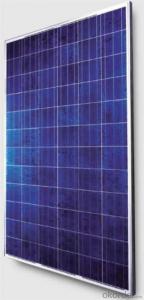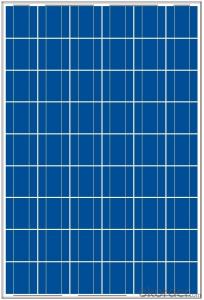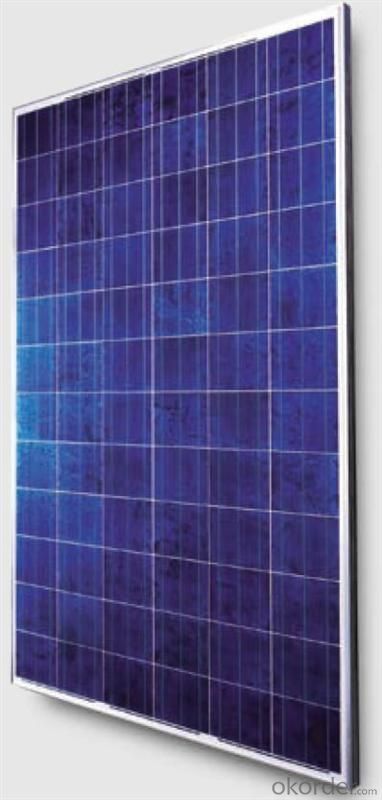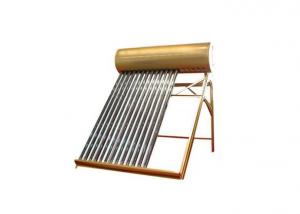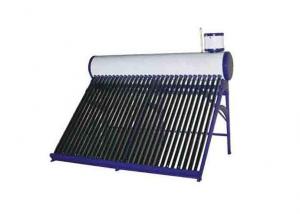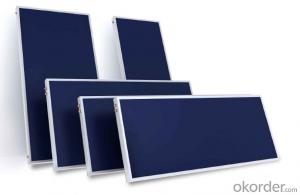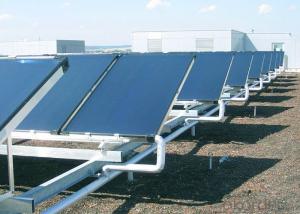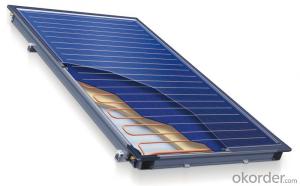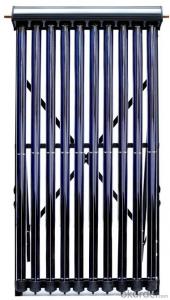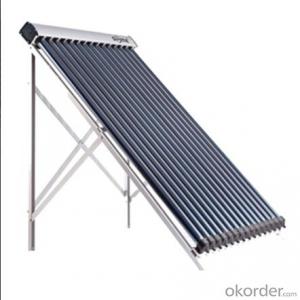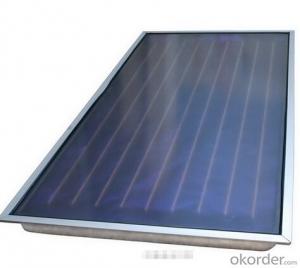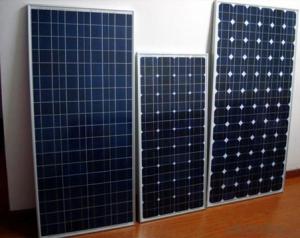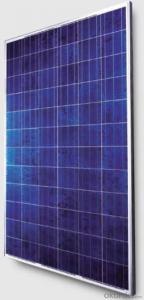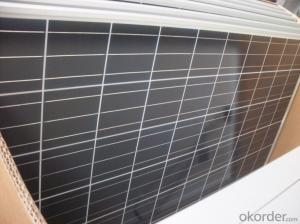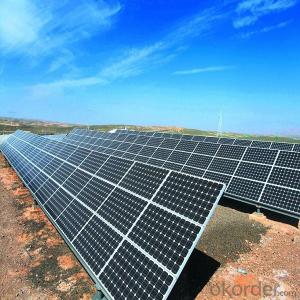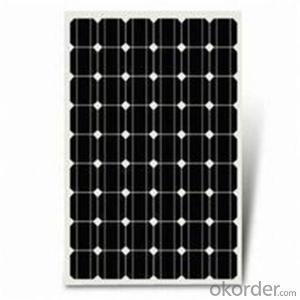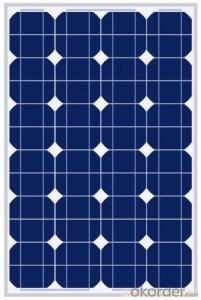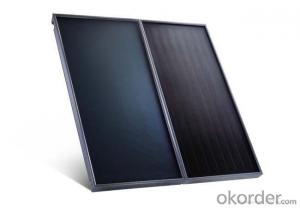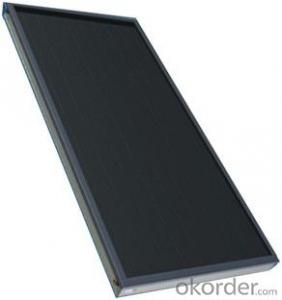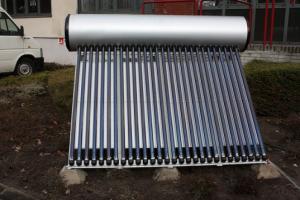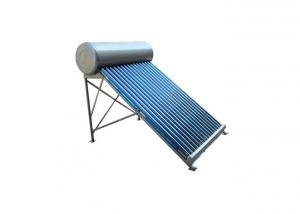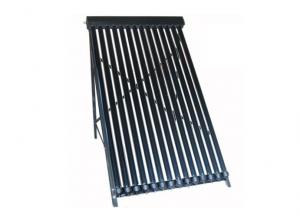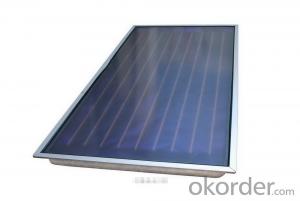Radco Solar Collectors - Polycrystalline Solar Modules Made in China for Exporting
- Loading Port:
- Tianjin
- Payment Terms:
- TT OR LC
- Min Order Qty:
- 1 pallet
- Supply Capability:
- 100000000 pallet/month
OKorder Service Pledge
OKorder Financial Service
You Might Also Like
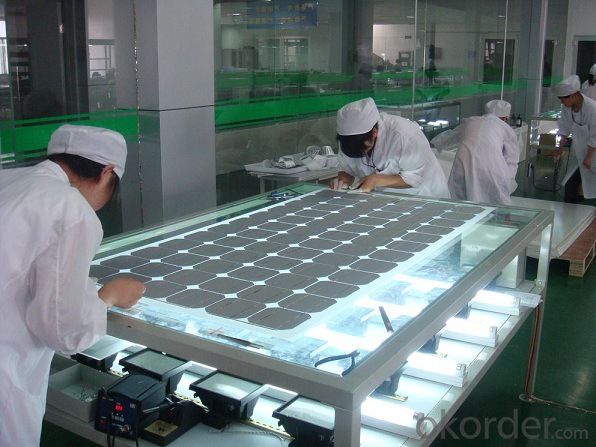
Specifications:
solar panels from 5W--300W, made of TAIWAN MOTECH brand cells,with CO in TAIWAN,Mono and Poly with VDE,IEC,CSA,UL,CE,ISO.
We import solar cells from Taiwan Motech brand, with this CO in taiwan and our CSA certification,we can still sell goods to Anti-dumping areas like USA. Our main products are solar panels, off grid and on grid solar home systems , solar street lighting systems, solar water heating system,solar pump,solar attic fan, solar DC LED lights and solar DC refrigerators.
Certificates : ISO, CE, VDE IEC, MCS, CSA-UL, CEC.
Delivery time: sample 10days, order 25-30days.
Sample: charged.
Payment term: T/T 30% as deposit, 70% before shipment. Or irrevocable L/C at sight.
Trade term: FOB Shenzhen or CIF destination seaport or Airport.
Characteristics:
I.Solar Cell : High efficiency crystalline solar cell. Even if under the weak light, the solar module can produce maximum power output.
II.Tempered glass (toughened glass): Anti-reflecting coating and high transmission rate glass increase the power output and mechanical strength of solar module.
III.EVA and TPT: Using high quality EVA and TPT to prevent destroying and water.
IV.AI frame: Without screw, corner connection. 6 holes on the frame can be installed easily.
V.Junction box: Multi function junction box with water proof.
VI.Long lifetime: ≥25 years; Less power decrease.
VII.Good performance of preventing from atrocious weather such as wind and hails.
VIII.Resisting moisture and etching effectively, not effected by geology.
IX.The certificate issued by international authority: UL, TUV, IEC, VDE, CE.
Quality and Safety
1. Rigorous quality control meets the highest international standards.
2. High-transmissivity low-iron tempered glass, strong aluminium frame.
3. Using UV-resistant silicon.
4. IS09001/14001/CE/TUV/UL
Warranties
1. 10 years limited product warranty
2. 15 years at 90% of the minimal rated power output
3. 25 years at 80% of the minimal rated power output
Technical date :
ITEM NO.: | Poly 156*156 cell ,60pcs . Power range from 230Wp-260Wp | ||||||
Maximum Power(W) | 230 | 235 | 240 | 245 | 250 | 255 | 260 |
Optimum Power Voltage(Vmp) | 29.4 | 29.5 | 29.7 | 30.1 | 30.3 | 30.5 | 30.7 |
Optimum Operatige Current(Imp) | 7.83 | 7.97 | 8.08 | 8.14 | 8.25 | 8.37 | 8.48 |
Open Circuit Voltage(Voc) | 36.7 | 36.8 | 36.9 | 37.1 | 37.3 | 37.5 | 37.7 |
Short Circuit Current(Isc) | 8.52 | 8.59 | 8.62 | 8.65 | 8.69 | 8.73 | 8.78 |
Solar Cell: | 156*156 Poly | ||||||
Number of Cell(pcs) | 6*10 | ||||||
Name of Solar Cells | Polycrystalline Cell | ||||||
Size of Module(mm) | 1650*992*40/45/50 | ||||||
Cable & Connector Type | Pass the TUV Certificate | ||||||
Frame(Material Corners,etc.) | Aluminium-alloy | ||||||
Back sheet | TPT | ||||||
Weight Per Piece(KG) | 19.5KG | ||||||
FF (%) | 70-76% | ||||||
Junction Box Type | Pass the TUV Certificate | ||||||
Tolerance Wattage(e.g.+/-5%) | ±3%, or 0-3% | ||||||
Front Glass Thickness(mm) | 3.2 | ||||||
Temperature Coefficients of Isc(%) | +0.04 | ||||||
Temperature Coefficients of Voc(%) | -0.38 | ||||||
Temperature Coefficients of Pm(%) | -0.47 | ||||||
Temperature Coefficients of Im(%) | +0.04 | ||||||
Temperature Coefficients of Vm(%) | -0.38 | ||||||
Temperature Range | -40°C to +85°C | ||||||
Surface Maximum Load Capacity | 5400Pa | ||||||
Allowable Hail Load | 23m/s ,7.53g | ||||||
Bypass Diode Rating(A) | 12 | ||||||
Warranty | 90% of 10 years, 80% of 25 years. | ||||||
Standard Test Conditions | AM1.5 1000W/ 25 +/-2°C | ||||||
Packing | carton or pallet | ||||||
1*20' | 14 Pallets / 316pcs | ||||||
1*40'STD | 25 Pallets / 700pcs | ||||||
FAQ:
We have organized several common questions for our clients,may help you sincerely:
1. What’s price per watt?
A: It’s depends on the quantity, delivery date and payment terms of the order. We can talk further about the detail price issue. Our products is high quality with lower price level.
2. Can you tell me the parameter of your solar panels?
We have different series of cells with different power output, both from c-si to a-si. Please take our specification sheet for your reference.
3. How do you pack your products?
We have rich experience on how to pack the panels to make sure the safety on shipment when it arrives at the destination.
4. Can you do OEM for us?
Yes, we can.
5. How long can we receive the product after purchase?
In the purchase of product within three working days, We will arrange the factory delivery as soon as possible. The perfect time of receiving is related to the state and position of customers. Commonly 7 to 10 working days can be served.
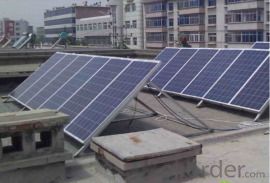
- Q: Are there any safety concerns associated with solar collectors?
- Yes, there are a few safety concerns associated with solar collectors. One concern is the risk of overheating and potential fires if the system is not installed or maintained properly. Additionally, there is a risk of electric shock during installation or maintenance if proper precautions are not taken. It is important to follow safety guidelines and have professionals handle the installation and regular maintenance of solar collectors to minimize these risks.
- Q: Can solar collectors be used for heating concert halls?
- Yes, solar collectors can be used for heating concert halls. Solar thermal systems can be designed to capture and convert sunlight into heat energy, which can then be used to warm the interior of concert halls. This can be achieved by installing solar collectors on the roof or nearby areas to absorb solar radiation and transfer the heat to a fluid, such as water or air, which is then distributed throughout the building's heating system. This renewable energy source can help reduce the reliance on fossil fuels and lower the carbon footprint of concert halls while providing efficient and sustainable heating.
- Q: Are solar collectors suitable for heating office buildings?
- Yes, solar collectors are suitable for heating office buildings. They can effectively harness solar energy to provide heat, reducing reliance on traditional heating systems and decreasing energy costs. Additionally, solar collectors are environmentally friendly, promoting sustainability and reducing carbon emissions. However, the feasibility and efficiency of using solar collectors for heating office buildings may vary depending on factors such as building size, location, and available sunlight.
- Q: Can solar collectors be used for heating sewage treatment plants?
- Yes, solar collectors can be used for heating sewage treatment plants. Solar thermal energy can be harnessed through the use of solar collectors to heat water or other fluids, which can then be used to warm sewage in treatment plants. This renewable energy source can help reduce the reliance on fossil fuels and lower the overall energy consumption of sewage treatment plants.
- Q: Can solar collectors be used in urban environments?
- Yes, solar collectors can be used in urban environments. While space limitations and shading from tall buildings may pose challenges, there are various innovative solutions available such as rooftop solar panels, solar windows, and solar canopies. These technologies can harness the power of the sun to generate clean energy even in densely populated areas.
- Q: Can solar collectors be used for heating in areas with high pollution?
- Solar collectors can still be utilized for heating purposes in regions with high pollution. While pollution does have some impact on the efficiency of solar panels, they are still capable of producing a significant amount of heat. The primary reliance of solar collectors is on sunlight, and even in heavily polluted areas, there is still sunlight that manages to reach the Earth's surface. However, it should be noted that the level of pollution does influence the overall efficiency and effectiveness of the solar collectors. In areas with severe pollution, the amount of sunlight that reaches the panels may be diminished, resulting in a decrease in the heat produced. Furthermore, pollution can cause the panels to accumulate dust and dirt, which further hampers their efficiency. Therefore, regular cleaning and maintenance of the solar collectors are imperative to ensure optimal performance, particularly in areas with high pollution levels.
- Q: How do solar collectors perform in areas with high levels of sand or dust storms?
- Areas with high levels of sand or dust storms pose challenges for solar collectors. Sand or dust particles in the air can hinder the efficiency of solar collectors by obstructing or covering the panel surfaces. As a result, the amount of sunlight reaching the collectors decreases, leading to a decrease in electricity or heat generation. To overcome these challenges, solar collectors in such areas often require frequent maintenance and cleaning. This involves removing accumulated sand or dust from the panel surfaces to allow for optimal sunlight absorption. In some cases, automated cleaning systems that use water or brushes may be installed to ensure clean panels free from any obstructions. Another approach is to apply advanced anti-soiling coatings on the solar collector surfaces. These coatings are specifically designed to repel dust and sand particles, preventing them from adhering to the panels. This helps to maintain efficient performance for longer durations between cleanings. Furthermore, the design and orientation of solar collectors can play a role in minimizing the impact of sand or dust storms. By placing the collectors at an angle or using tilted panels, the force of the wind during storms can naturally dislodge loose particles, reducing their accumulation on the panels. In conclusion, solar collectors in areas prone to sand or dust storms can maintain optimal performance through regular maintenance, cleaning, and the use of anti-soiling coatings. Proper design and orientation can also reduce the impact of these environmental conditions on the efficiency of solar collectors.
- Q: Can solar collectors be used for generating electricity on electric vehicle charging stations?
- Solar collectors, like solar panels, have the ability to generate electricity at electric vehicle charging stations. These stations can be equipped with solar collectors either on their roofs or nearby to capture solar energy and transform it into usable electricity. Consequently, this electricity can be utilized to operate the charging stations and charge electric vehicles. This approach not only offers a renewable and eco-friendly energy source but also reduces dependence on the conventional power grid. Moreover, solar collectors can be combined with energy storage systems to store surplus solar energy, guaranteeing a consistent and dependable power source for electric vehicle charging stations.
- Q: Can solar collectors be used for snow melting?
- Yes, solar collectors can be used for snow melting. Solar collectors can generate heat, which can be used to melt snow and ice on surfaces such as driveways, walkways, and roofs. This can help prevent accumulation of snow and improve safety during winter months.
- Q: Can solar collectors be used for heating cinemas?
- Yes, solar collectors can be used for heating cinemas. Solar thermal systems can capture the sun's energy and convert it into heat, which can then be utilized for heating purposes. By installing solar collectors on the roof or facade of a cinema, the heat generated can be used to warm the building during colder periods, reducing the reliance on traditional heating systems and potentially lowering energy costs.
Send your message to us
Radco Solar Collectors - Polycrystalline Solar Modules Made in China for Exporting
- Loading Port:
- Tianjin
- Payment Terms:
- TT OR LC
- Min Order Qty:
- 1 pallet
- Supply Capability:
- 100000000 pallet/month
OKorder Service Pledge
OKorder Financial Service
Similar products
Hot products
Hot Searches
